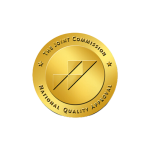What You'll Learn:
- Complexity of Relapse: Beyond the surface understanding.
- Deep Dive into Stages: Emotional, mental, and physical relapse dissected.
- Robust Prevention Techniques: Comprehensive strategies for sustaining sobriety.
- Role of Community and Support: The lifeline in the recovery journey.
Understanding the Intricacies of Relapse
Relapse is not a sign of weakness but a complex interplay of emotional, mental, and environmental factors. For many, understanding that relapse is a process rather than an isolated event can be a revelation. This process usually begins long before the actual act of returning to substance use. The journey towards a potential relapse often starts with emotional and psychological shifts that, if unchecked, can culminate in physical relapse.Emotional Relapse
The emotional phase, being the first, is also the most insidious. Because a person doesn't necessarily think of using it during this stage, it's easy to miss the signs. However, feelings can act as precursors, anxiety being the most common feeling that typically leads to relapse. The feeling of anxiety can stem from the fear of facing life without substances. But this is where American Recovery steps in, our programs assist with the support you may need to stay on track and offer the availability of our licensed staff to assist you along the path of your recovery. Others may become defensive and refuse to confront their feelings which can lead to defensive behavior or even isolation. If you notice yourself or someone you know avoiding meetings or social engagements this may hint that there could be an internal struggle they are dealing with. Ways to address these, one could maintain an emotional health journal. Logging feelings daily can provide clarity and highlight troubling patterns. Additionally, staying connected with a trusted circle ensures that these feelings don't go unnoticed.Mental Relapse
Embarking on the path of recovery from addiction is like navigating a maze, fraught with challenges, doubts, and internal conflicts. One of the most unsettled phases of this journey is the mental stage of relapse, a period characterized by an overwhelming internal battle between the desire to stay sober and the temptation to use. Understanding this phase in depth can be the key to preventing a full-blown relapse and maintaining the hard-won progress toward sobriety. The mental phase embodies the adage, "A battle of two minds." A part of you wants to use, while another resists:- Romanticizing Past Use: There's a tendency to recall only the 'good times' associated with substance use, conveniently glossing over the negative consequences.
- Bargaining: Internal dialogues like, "Maybe I can use just this once," or "I've been sober for a while; one time won't hurt," become more frequent.
- Lying: Being dishonest to oneself or loved ones about feelings, or about being around potential triggers.
- Seeking Opportunities: Actively looking for scenarios or circumstances that might facilitate substance use.


